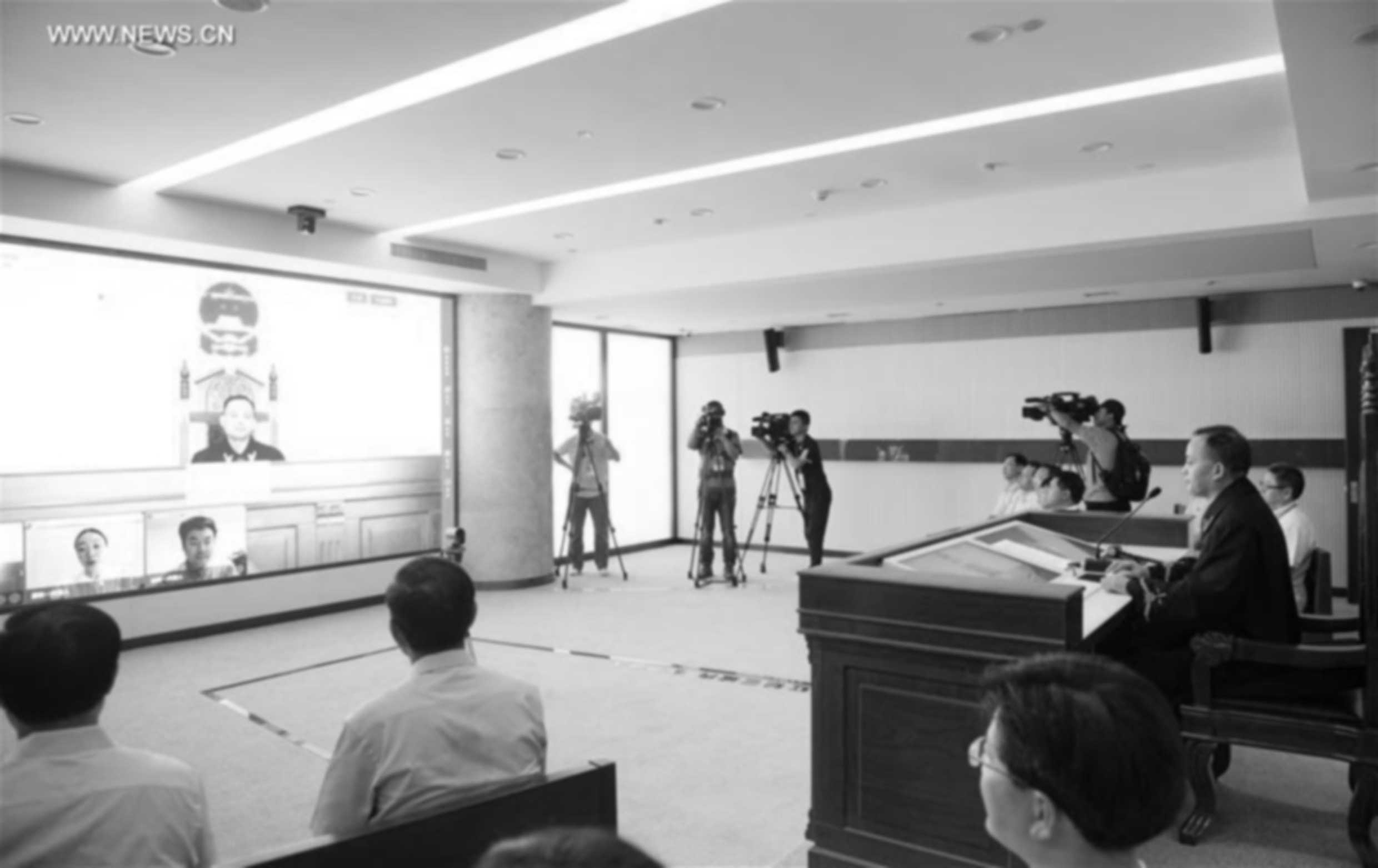We can all agree that the legal system is out-of-date and at times very crooked. It’s a system that benefits the wealthy and powerful, while leaving little hope for those with minimal resources. In other words, a heavy dose of innovation in the form of a Cyber Court, a Robot Lawyer, and an AI Judge could be extremely impactful.
Well, look out Suits because the legal system is in the midst of an upgrade.
Sentenced to Cyber Court
If you’ve ever been to court for a traffic violation or a minor dispute, then you know how inefficient they are. You show up at 9am and basically wait for your name to be pulled out of a hat.
However, the capital of Chinese e-commerce, Hangzhou, may have found a solution to this aggravating process: Cyber Court. Sorry, but it’s not a new daytime series starring Judge Judy. Rather, it’s a court where the defendants and plaintiffs show up via video chat.
Honestly, it’s about as simple as it sounds. There’s a virtual waiting room where both sides can come to an agreement with their legal representation. And if they don’t, they go before the judge on a screen.
After experiencing an increase from 600 to 10,000 e-commerce cases over the past four years, the Hangzhou government decided it was time to optimize their processes, giving birth to the world’s first Cyber Court. Although the Cyber Court only accepts e-commerce related cases, you can’t help but think the future of any minor legal battle may exist in the Cyber Court.
Want to fight your speeding ticket? Reserve a time at the Cyber Court’s Skype session.
Need a restraining order issued on the Domino’s Pizza Delivery Guy? File for the Cyber Court.
Obviously, before the Cyber Court becomes the norm, court systems will need to work out the kinks of internet connectivity. Since, theoretically someone can just “exit the courtroom” when the case isn’t going their way. And there are many other issues regarding privacy, case workflow, and best practices that’ll need to be considered.
Nonetheless, the Cyber Court is a step in the direction of legal system efficiency. And it’s not just the courts that are getting an upgrade.
DoNotPay, the Robot Lawyer
There’s nothing cushy about being a lawyer. You must be a strategist, quick to change directions, and have the mental tenacity of a lion.
All of this expertise doesn’t come cheap. I’m still paying off a $20,000 lawyer bill from two years ago!
So, what makes lawyer bills so expensive?
A portion of it has to do with the unglamorous parts of being a lawyer – researching thousands of case files looking for a legal precedent. Traditionally, this is a job done by paralegals, junior lawyers, and other newbies.
Now, it may be a job for the robot lawyer. Systems such as ROSS Intelligence arm lawyers with algorithms that can research the vast US legal database – finding answers to legal disputes in seconds.
What about replacing lawyers altogether?
Well, that’s a minor mission of Joshua Browder’s robot lawyer, DoNotPay. By understanding state laws and wording documents in the most conducive way for legal resolution, his robot lawyer has helped resolve over 375,000 parking tickets in the past two years, at no cost. And it’s sights are set on thousands of other minor appeals.
A robot lawyer that understands legal jargon and calls upon ANY legal precedent sounds dangerous to the law profession. While we aren’t going to see a computer monitor in the courtroom defending a client anytime soon, those who are looking to get into law should be wary.
We are talking about a job where the first 5-10 years are usually filled with the grunt work that is now being solved by algorithms (the robot lawyer) at a fraction of the cost and time.
Outside of defending clients, legal algorithms make an interesting attempt at balancing the scales of justice.
Law and AI Order
There is little rhyme or reason to how our justice system works. Studies have shown that anything from when an official last ate to how well the local sports team is performing can generate wild swings in how sentencing decisions are made.
Let’s be honest. When 58% of people incarcerated are either black or Latino, even though they make up less than 25% of the population; and with their sentences being 20% longer on average than their white counterparts – it seems as though it’s a game of “pick on the minority”.
For that reason, many states are considering using algorithmic tools to help “standardize” sentencing; bringing order to a process that has little predictability.
Here in Wisconsin, many courts use Compas, which is a risk-assessment algorithm. Compas analyzes multiple data points with the promise of aiding in the fair sentencing of all individuals.
The problem? Nobody outside of Compas’s creators (Northpointe Inc.) actually know how the tool works. And those who have tried analyzing it have found shocking results that don’t seem any different than the current system’s bias.
While we generally see machines as unbiased in comparison to humans, those that program these tools have the power to tweak them any which way they wish.
All in all, we shouldn’t look to algorithms, AI, and technology to finally balance the scales of justice. It’s just not going to happen. It may help. But, racial disparities in the justice system is a problem WE must solve. Humans. Not computers.
And that goes for many problems we’ve created.
Over-depending on Technology
We have a cancerous dependence on “technology’s promise” of changing everything that’s wrong with the world.
Rarely do we look at our own behaviors and think: “I can actively change this problem the old fashioned way – with willpower and persistence”.
For instance, the past year or two has seen a huge craze in mindfulness and meditation apps. Basically, they are apps that tell you when to disconnect from technology and to discover the truth in your soul, which doesn’t make sense at all!
Mindfulness and meditation is supposed to be a time where you get away from ALL external distractions – not stay attached to the most distracting tool of all.
Do we really need to be reminded by our devices when it’s time to step away from our devices?
The saying always goes: There are some things money can’t buy. Well, I think there’s a 21st century edition: There are some things technology can’t change.
The next time you reach a problem, try to solve it without Google’s help, without YouTube tutorials, without downloading an app.
It’s going to take you longer and it won’t be easy. But, don’t let yourself lose your own problem-solving abilities. Because it’s a muscle that will vanish if not flexed every once in awhile.
Shoot me an email with your thoughts on technology’s role in the justice system or our dependence on technology for change. Thanks for reading this week’s Quick Theories!



Excellent and observant as usual. Please take a look at a recent article I posted on a closely related topic which focuses on the plight of the legal profession:
https://www.linkedin.com/pulse/software-eating-world-legal-service-menu-kenneth-tung/
Let me know what you think.